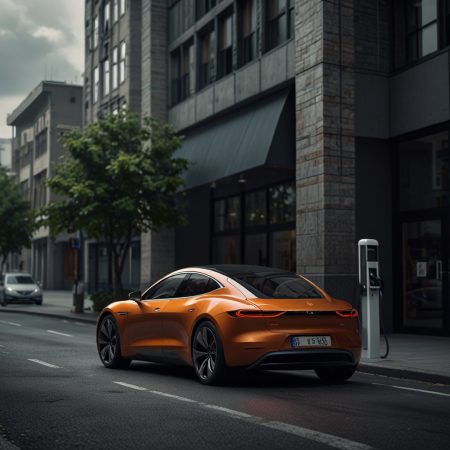According to Artificial intelligence just like all cars will be electric in 2030 because artificial intelligence and emerging technology are growing widely fast in every industry. The debate about whether all cars should be electric is a hot topic with strong arguments on both sides. The all cars should be electric debate is central to this discussion. Here is an explanation of the key points about it.
- Environmental benefits: Electric cars produce zero tailpipe emissions, which helps combat climate change and air pollution.
- Cost savings: Electricity is generally cheaper than gasoline, and electric cars require less maintenance due to fewer moving parts.
- Energy independence: Electric cars can be charged with renewable energy sources like solar and wind power, reducing reliance on fossil fuels.
- Performance: Electric motors provide instant torque, making for quick acceleration and a smooth, quiet ride.
Arguments against all-electric:
- Range limitations: Electric cars currently have a shorter driving range than gasoline cars on a single charge, causing “range anxiety” for long trips.
- Charging infrastructure: Charging stations are not yet as widespread as gas stations, making it inconvenient for some drivers. Charging an electric car also takes longer than refueling with gas.
- Upfront cost: Electric cars tend to be more expensive to buy upfront than gasoline cars, primarily due to battery costs.
- Battery life and replacement: Electric car batteries degrade over time, reducing their range. Replacing batteries can be expensive.
- Environmental impact of battery production: Mining the materials for electric car batteries can have negative environmental and social impacts.
Considerations for the future:
- Battery technology: As battery technology improves, range will increase, and charging times will decrease, making electric cars more practical.
- Charging infrastructure: Governments and private companies are investing in expanding the charging network, making it easier to find stations.
- Cost of electric cars: As production scales up, the cost of electric cars is expected to come down, making them more affordable.
- Renewable energy: The wider adoption of renewable energy sources will make electric cars even more environmentally friendly.
So, should all cars be electric?
There is no simple answer. Electric cars offer significant environmental and economic benefits, but challenges like range and charging infrastructure remain. For some drivers, electric vehicles are already a great choice. However, for others, concerns about range and cost may make gasoline cars a better option, for now.
The future of transportation likely involves a mix of electric vehicles, hybrids, and potentially even hydrogen-powered cars. As technology improves and infrastructure expands, electric cars are likely to become a more viable option for a wider range of drivers.
Additional Considerations in the All-Electric Car Debate
Beyond the core arguments, here are some other factors to consider:
- Impact on the Grid: A large shift to electric vehicles will put a strain on the electricity grid. Upgrading the grid infrastructure will be crucial to support widespread electric car use.
- Job Market: The transition to electric vehicles could lead to job losses in the traditional auto industry and fossil fuel sectors. However, it could also create new jobs in battery production, renewable energy, and charging infrastructure.
- Equity and Accessibility: The high upfront cost of electric cars could make them inaccessible to low-income earners. Government policies and incentives will be needed to ensure everyone can benefit from the transition to electric vehicles.
- Consumer Choice: Some people simply prefer the freedom and convenience of gasoline-powered cars, particularly those who take frequent long trips. A complete ban on gasoline vehicles might face resistance from consumers.
Potential Solutions and the Path Forward
- Focus on Innovation: Continued research and development in battery technology, charging infrastructure, and renewable energy will be essential for making electric cars a truly viable option for everyone.
- Government Incentives: Tax breaks, rebates, and investment in charging infrastructure can encourage wider adoption of electric vehicles.
- Consumer Education: Raising awareness about the benefits of electric cars and addressing concerns about range and charging can help overcome consumer hesitation.
- Phased Approach: A gradual transition to electric vehicles, with continued availability of gasoline and hybrid options, may be more realistic than an immediate ban on gasoline cars.
The debate about all-electric cars is complex and multifaceted. There’s no single solution, but by considering all the factors, fostering innovation, and implementing smart policies, we can move towards a cleaner and more sustainable transportation future.
There’s no clear-cut answer to the “all-electric cars” debate. Electric vehicles offer a compelling path towards a cleaner, more sustainable future, but challenges like range and charging infrastructure remain.
The future of transportation likely involves a mix of technologies, with electric cars playing an increasingly prominent role as technology improves and infrastructure expands. Ultimately, fostering innovation, implementing smart policies, and ensuring affordability will be key to a successful transition towards a more sustainable transportation system.

